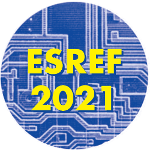Program > Tutorials
Machine learning based data and signal analysis methods for the application in failure analysis
Michael Kögel, Sebastian Brand, Fraunhofer IMWS
The tutorial aims at the introduction of the field of artificial intelligence, with focus on machine- and deep learning approaches, to the community of failure analysts. Starting with a brief excursion into the history available learning and analysis methods will be presented and introduced. In the main part of the tutorial the primary steps of a machine learning workflow will be presented, beginning with an overview of data sources and data handling. It will continue with the process of feature engineering for the extraction of features from the raw data, employing e.g. data mining techniques. Furthermore, an insight on how to select an appropriate learning algorithm will be given. The concepts and workflows of the different learning types and the corresponding models and systems will then be elucidated and criteria for model evaluation and optimization strategies will be addressed. The Tutorial will include several case studies and approaches to illustrate the potential in the field of failure analysis.
 |
Michael Kögel graduated from the University of Applied Sciences in Leipzig in 2015 with a degree in Electrical Engineering and Information Technology. He wrote his Master thesis at Fraunhofer IMWS-CAM on methods and techniques for exploring spectral extraction of Rayleigh waves on solid interfaces with GHz-SAM. Since 2015, Michael Kögel works as an engineer for failure analysis of semiconductor components at IMWS-CAM and is member of the team for non-destructive defect localization in the field of failure analysis and metrology in microelectronics. His experience includes application and development for Scanning Acoustic Microscopy, Lock-In-Thermography and Magnetic Current Imaging
|
 |
Sebastian Brand is a senior scientist at the Fraunhofer Institute for Microstructure of Materials and Systems in Halle, Germany where he leads a research-, development and application team for non-destructive defect localization in the field of failure analysis and metrology. Sebastian holds a Ph.D. in electrical engineering which he received in 2004 from the University of Magdeburg, Germany. In 2004 and 2005 he joined the University of Toronto and Ryerson University in Toronto, Canada as a post-doctoral fellow working in the field of cancer research. Sebastian has 18 years of experience in the field of acoustics in life- and material sciences and authored /coauthored more than 60 publications in this and adjacent research fields. His current research extends from acoustic methods over Lock-In-Thermography to magnetic imaging where he and his team undertake research and development for non-destructive defect localization and characterization to address challenges arising from novel technologies like 3D-Integration.
In the years 2009 – 2015 Sebastian and his team developed a novel Acoustic GHz-microscope in close collaboration with industry for the application in microelectronics failure analysis and metrology.
|
GaN power transistors: devices, technology and reliability
Matteo Meneghini, Univ. Padova, Italy
GaN has recently emerged as an excellent material for the fabrication of power semiconductor devices. Its wide bandgap, high breakdown field and high carrier mobility allow the fabrication of transistors with excellent breakdown performance and low on-resistance. This tutorial will introduce the operating principles and challenges of GaN-based transistors. Specific focus will be given to the processes that limit the stability of the main parameters (threshold voltage, on-resistance), and the long-term reliability, to provide a clear overview on the topic. Finally, future perspectives will be discussed.
 |
Matteo Meneghini received his PhD in Electronic and Telecommunication Engineering (University of Padova), working on the optimization of GaN-based LED and laser structures. He is now associate professor at the Department of Information Engineering at the University of Padova. His main interest is the characterization, reliability and modeling of compound semiconductor devices (LEDs, laser diodes, HEMTs), and optoelectronic components, including solar cells. Within these activities, he has published more than 400 journal and conference proceedings papers.
|
|


